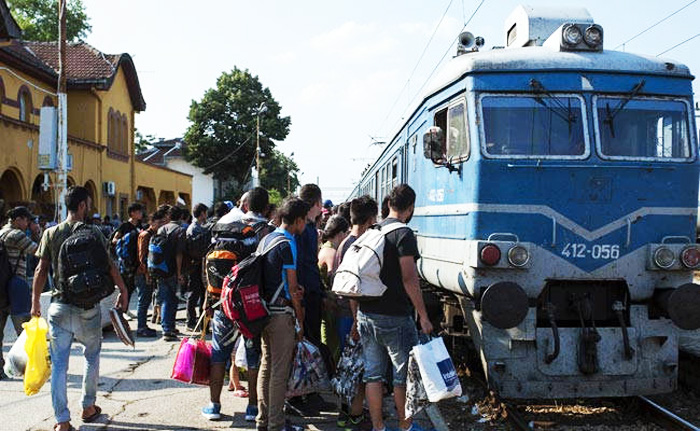Greece needed the time to ready itself "in case we have renewed migration flows from springtime onwards," he said.
The latest UN refugee agency figures show that nearly 400,000 people fleeing war and poverty have reached Greece from neighbouring Turkey this year.
Most are from Syria but there are also Afghans, Pakistanis, Iranians and other nationalities.
But crossing the Aegean Sea this time of year in inflatable dinghies can be perilous.
With winds frequently exceeding 40 kilometres (25 miles) an hour, more than 100 migrants including several children have died or gone missing in the last two weeks alone in at least seven boat accidents, according to Greek figures.
In the summer, when the refugee wave first began to spike, Greece was criticised by the UN and rights groups for leaving entire families stranded on eastern Aegean islands for days, without food, shelter and access to sanitation.
The authorities subsequently chartered ferries to swiftly bring the migrants to the mainland, from where they make their way north towards other EU states.
A reception camp opened in Athens in August but with over 2,000 people arriving from the islands on a daily basis, more facilities are urgently needed.
Authorities on Thursday moved about a thousand mainly Afghan refugees who were sleeping on the streets to a former Olympic sports hall in western Athens.
There are also plans to utilise an empty army camp on the city`s northwestern outskirts.
"We have promised to ease the burden placed on communities by the enormous refugee flow," Mouzalas said today.
"We are creating a network (of facilities) to reduce the pressure wherever it builds up," he said.
More about:















































